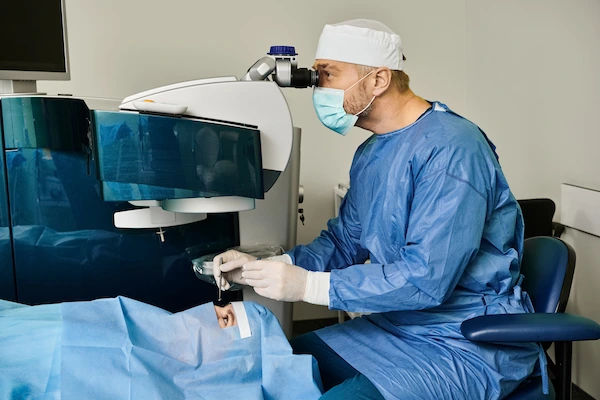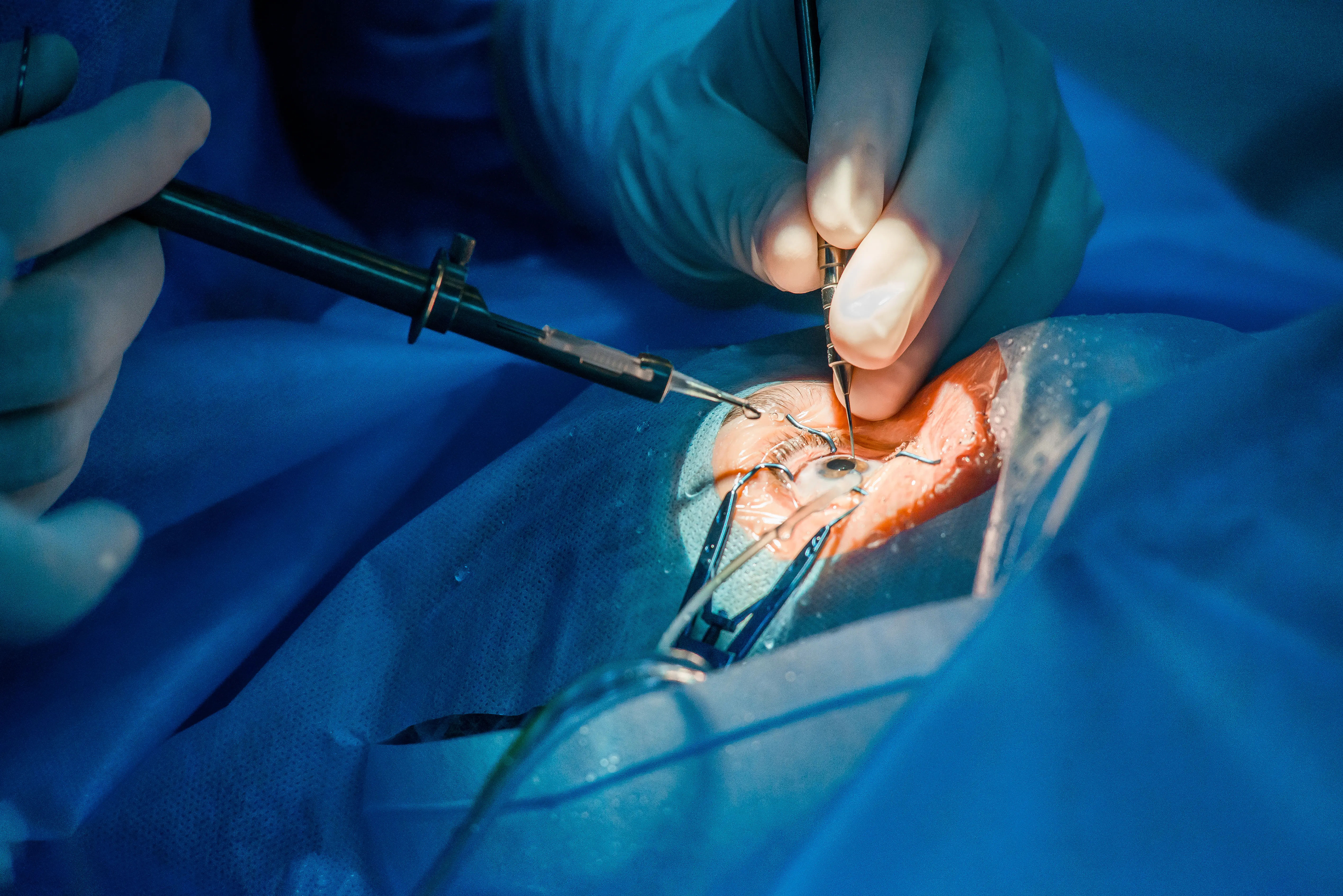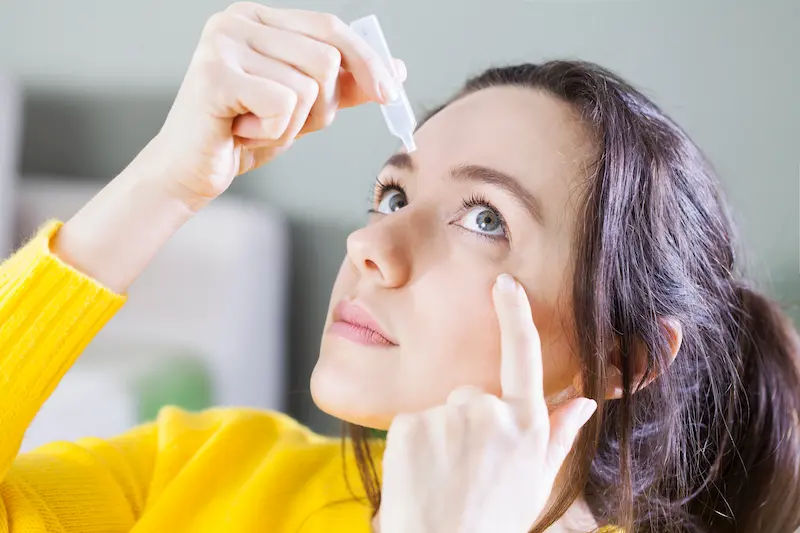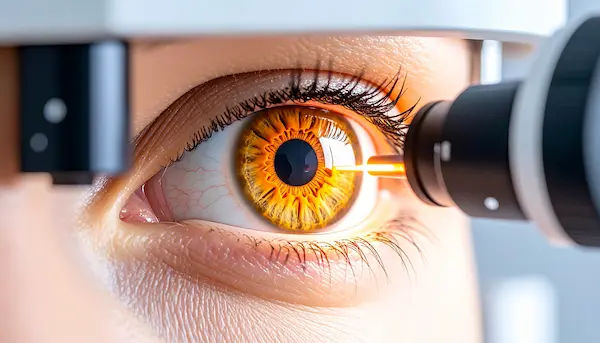How To Reduce Puffy Eyes?
Discover effective tips to reduce puffy eyes, including lifestyle changes, home remedies, and skincare solutions. Learn how to tackle puffiness for a refreshed, vibrant look.

Written by
Last updated on 13th Jan, 2026
The puffy eyes refer to swelling around the eyes that makes an individual appear exhausted or ill. It impacts the appearance of the person, hence affecting his/her self-esteem. Puffy eyes originate from factors like allergies, lack of sleep, hormonal changes, fluid retention and genetic disposition. At the same time, existing medical conditions like sinus infection and kidney problems can also aggravate the condition. Therefore, understanding the root causes of facial swelling is essential as it prompts people to take effective steps and achieve a refreshed appearance.
Lifestyle Changes to Reduce Puffy Eyes
Simple but effective lifestyle changes can minimise puffiness and give a rejuvenated look. The key habits and ways to reduce swelling around the eyes are:
Staying Hydrated: Proper hydration removes excess sodium and flushes out excessive fluid retention, which prevents under-eye swelling. So, drinking enough water throughout the day helps maintain overall skin health and helps combat puffiness.
Maintain a Balanced Diet: Opt for a diet that does not contain too much salt and has antioxidants. Vitamins are often able to prevent inflammation and unnecessary water retention. Consequently, eating fruits, vegetables, and potassium-rich foods will help maintain bodily fluid balance.
Improve Sleep Habits: Quality sleep is necessary to reduce puffiness. Individuals need to get quality sleep of 7 to 9 hours per day. Also, they must sleep with the head slightly elevated to stop fluid accumulation around the eyes.
Manage Allergies: The eye can become swollen and irritated due to allergies. By taking prescribed medication and coming to grips with allergens and exposure, puffiness can be reduced.
Limit Alcohol and Caffeine Consumption: Excessive alcohol and caffeine intake also dehydrates the body, creating fluid retention, which causes swollen eyes. So, avoid them to effectively reduce puffy eyes.
Home Remedies for Puffy Eyes
Several natural remedies can reduce puffiness without any side effects. Below are a few simple yet effective home care solutions to depuff the eyes:
Cold Compress Therapy: Cold compresses can help constrict the blood vessels and reduce swelling. Apply a cold compress with chilled spoons, ice packs, or a damp cloth.
Cucumber Slices for Instant Refreshment: Chilled cucumber slices can be placed on the eyes for hydration and cooling effects to depuff and soothe the irritation.
Tea Bags for Antioxidant Benefits: Chilled green or black tea bags can aid in reducing swelling because they contain anti-inflammatory and antioxidant properties, which increase circulation.
Aloe Vera for Soothing Hydration: Applying a few drops of some fresh aloe vera gel around the eyes hydrates the skin; soon, it reduces inflammation and improves elasticity.
Potato Slices for Natural Depuffing: Astringent properties are found in raw potato slices, which helps reduce water retention and makes the under-eye area appear more refreshed.
Egg White Mask for Firming Effects: Applying whisked egg whites under eyes tightens skin and reduces puffiness by improving circulation and decreasing fluid build-up.
Gentle Under-Eye Massage: A light massage with fingertips or a jade roller helps stimulate lymph drainage, reduce swelling, and improve blood circulation.
Usage of Eye Creams: A day cream containing caffeine, hyaluronic acid, and peptides can fight puffiness by moistening the under-eye area.
Professional Treatments
Various medical and cosmetic procedures can also help lower and eradicate puffiness of the under-eye area and improve the skin's appearance. The options include –
Dermatological Eye Creams and Serums: Prescription-based eye creams with retinol, peptides, or other specialised ingredients will assist in increasing skin firmness and reducing swelling more than any over-the-counter option.
Chemical Peels for Skin Rejuvenation: Mild chemical peels also aid in reducing pigmentation and improve skin texture, which makes the under-eye appear firmer and younger.
Laser Therapy for Long-Term Results: Fractional laser resurfacing is one of the cosmetic treatment options that can stimulate collagen production, tighten skin, and minimise puffiness by improving skin elasticity.
Dermal Fillers for Volume Restoration: Under eye hollows are smoothed out, and puffiness is reduced by injectable fillers (hyaluronic acid-based treatments, for example) that restore the lost volume.
Lymphatic Drainage Therapy: Professional lymphatic drainage massages have proven to be a non-invasive way to stimulate circulation and reduce fluid retention. This helps to get rid of the eye puffiness that continues to plague an individual.
Blepharoplasty for Permanent Correction: For extreme under-eye puffiness resulting from fat deposits and excess skin, surgical procedures called blepharoplasty can give long-lasting results by removing or shifting fat and tightening the skin.
Preventative Measures
Proactivity is the way to go to help prevent under-eye puffiness and keep the eyes looking fresh. In this regard, a good skincare routine is important. It keeps the under-eye area firm and hydrated, reducing puffiness. Key practices include:
Using a Gentle Cleanser: Harsh products can wipe off the moisture from the skin, causing it to react through irritation and bloating.
Applying Eye Cream: Ingredients like caffeine, peptides, and hyaluronic acid help reduce puffiness and improve skin elasticity.
Opting for Regular Facial Massages: Administering regular facial massages using a jade roller or fingertips improves lymphatic drainage and circulation.
Avoiding Heavy Night Creams: Hefty night creams can trap the fluid and increase morning puffiness.
Additionally, the skin around the eyes is delicate, weakening by UV rays and thus results in premature ageing and puffiness. Preventive measures for this include:
Use UV-protected sunglasses to protect the eyes from sun damage.
Apply a broad-spectrum sunscreen with SPF 30 or above every day to protect the under-eye area.
Additional protection includes using a wide-brimmed hat against direct sunlight, which lowers the chance of skin damage.
Managing Allergies
Allergic reactions often cause inflammatory and fluid retention around the eyes. Effective management includes:
Finding the triggers, which include pollen, dirt, pet dander, etc. and staying away from it.
Using over-the-counter and prescribed antihistamines to reduce allergic reactions.
Washing blankets and pillowcases often to avoid exposing an individual to different allergens.
Using fragrance-free products that are tested for dermatological use. They reduce the chances of irritation.
When to See a Doctor?
Puffy eyes are temporary and harmless, but some signs indicate an underlying medical problem. If symptoms do not resolve or get worse, it is necessary to seek advice from a professional. Here is when to see a doctor:
Persistent Puffy Eyes
Under-eye swelling may sometimes not improve, even with lifestyle changes and home remedies. In such cases, medical evaluation is required. Look out for:
Persistent swelling for several weeks without improvement
One-sided or uneven puffiness with no clear cause
Worsening progresses with time and interferes with daily activities and vision
Additional Symptoms to Watch For
Other symptoms associated with puffy eyes that may require urgent medical attention are:
Pain, redness, or tenderness around the eyes
Light sensitivity, blurry vision or trouble focusing
Itching, discharge, crusting, or a persistent itch can be some sign of infection
Allergic reaction with signs like severe swelling, breathing difficulty, dizziness, and rash
Early medical intervention can detect and solve any chances of underlying health conditions and receive the appropriate treatment at the right time.
Conclusion
Reduction of puffy eyes can only be done with consistent lifestyle changes, home remedies, and professional treatment, where necessary. Prevention of under-eye swelling requires maintaining a healthy routine that includes staying hydrated, sleeping well, and eating healthy food. With the help of home remedies like cold compresses and gentle massages, professionals can treat persistent cases. For long-term eye health, it is vital to maintain consistency in skincare, apply sun protection, and practise allergy management. By staying aware of these strategies and getting help from professionals, individuals can efficiently deal with puffy eyes and keep a youthful and fresh look.
Consult Top Dermatologist
Consult Top Dermatologist
Dr. Mayuri Jain
Dermatologist
11 Years • MBBS, MD Dermatology , Venereology & Leprosy
Delhi
Dr Mayuri Jain Clinic, Delhi
Dr. Kavitha Killaparthy
Dermatologist
23 Years • MBBS,DIPLOMA(DERMATOLOGY,VENEREOLOGY,LEPROSY)
Hyderabad
JDS Skin & Hair Clinic, Hyderabad
Dr.j Girishma
Dermatologist
6 Years • MBBS MD DERMATOLOGY
Bengaluru
Apollo Medical Center, Marathahalli, Bengaluru
Dr. Praveen Kumar
Dermatologist
5 Years • MBBS, MD DVL
Yenugonda
SVS Hospital ., Yenugonda

Dr. Madhab Datta
Dermatologist
5 Years • MBBS, MD (DVL)
Kolkata
Dr. Madhab Datta's Clinic, Kolkata




